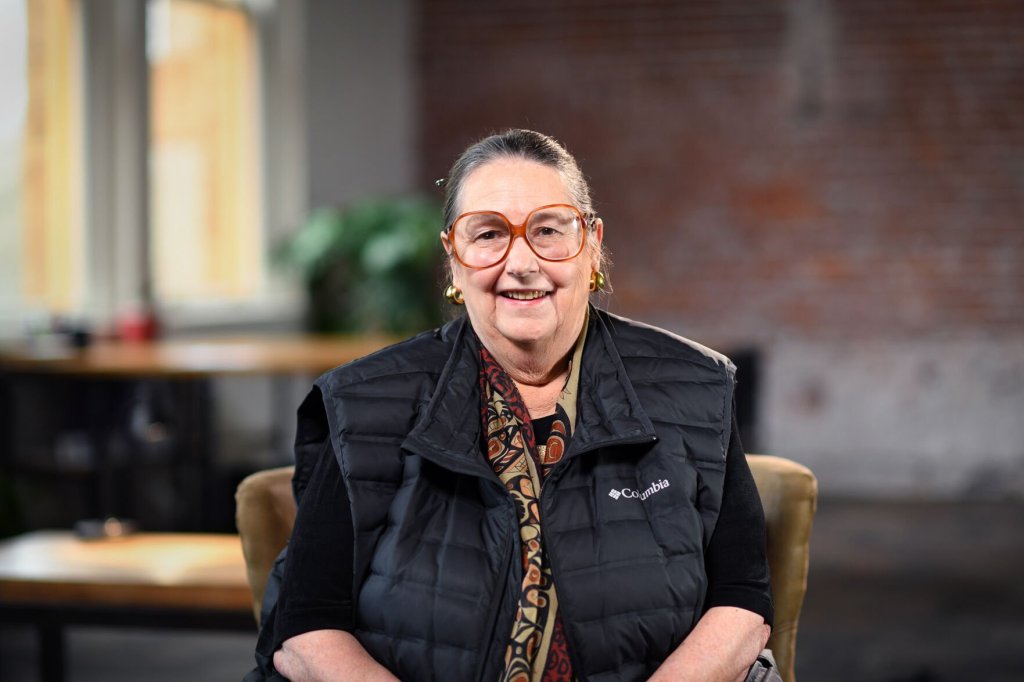Election 2022: Progressive women win big, Republican races remain tight
Published 7:08 am Wednesday, May 18, 2022

- Betsy Johnson’s first campaign goal is to gather at least 24,000 valid signatures to submit to the secretary of state by Aug. 16.
SALEM — Progressive women won big in Oregon’s Democratic primaries Tuesday, May 17, while contested Republican races remained close with many ballots left to count.
Trending
Former House Speaker Tina Kotek won the Democratic primary for governor. Labor Commissioner Val Hoyle, state Rep. Andrea Salinas and attorney Jamie McLeod-Skinner are winning their congressional primaries. McLeod-Skinner looks to be on her way to defeating an incumbent Congressman, a rare feat in Oregon politics.
And Portland civil rights attorney Christina Stephenson is leading the nonpartisan race for commissioner of the state Bureau of Labor and Industries. If she remains above 50%, she’ll win outright; otherwise she will head to a runoff in November.
Heading into the primary, election officials and candidates warned that results might not be known until later in the week. Wide-open races for governor and two Congressional districts, a new law allowing counting of ballots postmarked by Election Day and an unexpected ballot printing error in one of the state’s largest counties all contributed to general uncertainty heading into election night.
Trending
Ballots are printed with barcodes that can be read by a machine to identify which races are on a particular ballot. In Clackamas County, about two-thirds of the ballots returned had blurred barcodes.
Bipartisan teams of election workers have to copy the defective ballots by hand onto paper ballots that can be read by the county’s tallying machines. Secretary of State Shemia Fagan, who visited Clackamas County with other state election officials Tuesday to watch the ballot copying process, said in a statement that the county may be slower to report results.
“We are confident they will report accurate results,” Fagan said May 17.
Governor
Kotek proclaimed victory shortly before 9 p.m. May 17, telling supporters at a Portland campaign event that state Treasurer Tobias Read called to concede.
If former House Republican Leader Christine Drazan’s lead holds over Bob Tiernan, a former chair of the Oregon Republican Party, two caucus leaders who sparred in the House will face each other in the general election.
After depleting their resources in primary races, they’ll face a formidable and well-funded foe in Betsy Johnson, a longtime moderate Democratic state senator from northwest Oregon who mounted an independent campaign for governor.
“Tonight, the political extremes have chosen,” Johnson said in a statement. “Tina Kotek is more Kate Brown than Kate Brown and Christine Drazan wants to take away a woman’s right to choose. I know we can get our mojo back, but not with the same old politics of the far left and far right. The biggest change Oregon can make this year is putting the people back in charge with an independent governor loyal only to Oregonians, not the political extremes.”
Johnson has almost $5.4 million in her campaign bank account, after raising almost $8.4 million over the past year. She’s backed by Nike co-founder Phil Knight, who has given her campaign $1.75 million so far, and large contributions from Oregon businesses including logging equipment company the Papé Group, a logging equipment company.
Johnson must gather about 24,000 signatures from Oregon voters by Aug. 30 to make it onto the November ballot as a non-affiliated candidate.
Kotek told the Capital Chronicle her nomination shows that Oregon voters want to continue moving forward.
“People know what’s at stake,” she said. “They’re looking for leadership to solve problems, and there’s a lot at stake in November. Whoever comes out of the Republican primaries is going to be conservative. Senator Betsy Johnson, I believe, is a conservative. This is going to be about moving our state forward and not backward, and that’s what these results are about tonight.”
There were 15 names on the Democratic ballot for governor, but the race had essentially been a two-person duel between Kotek and Read since former New York Times columnist Nick Kristof was ruled ineligible to run because he hadn’t lived in Oregon long enough to meet residency requirements.
Kotek, the longest-serving House speaker in state history, has been the favorite to win. She racked up endorsements from progressive advocacy groups, labor unions and a long list of current and former elected officials.
She also led the money race, bringing in almost $2.4 million, in large part because of large contributions from labor unions. Kotek also spent almost all the money her campaign raised and has only about $10,000 available, according to campaign finance records filed with the state Elections Division.
Read, who lives in Beaverton, served in the Oregon House for 10 years before he was elected treasurer in 2016. He positioned himself as a political outsider and a more moderate alternative to the brand of Portland progressivism represented by Kotek.
Read raised just more than $2 million over the past two years and spent most of it. He still has two years left in his term as treasurer.
Republican ballots featured 19 candidates and no clear frontrunner. Drazan, who served as the House Republican leader from 2019 to 2021, led with 24% of votes after initial results. Only Tiernan came close, with 19%.
Drazan has largely avoided some of the cultural issues that preoccupied others in her party, including saying in a recent debate that she would veto bills that expanded abortion rights but wouldn’t proactively seek to restrict abortion as governor. She also acknowledged the validity of the 2020 presidential election and condemned the 2021 attack on the U.S. capitol.
She leads the Republican field in fundraising with more than $2.5 million this year, but she spent nearly all of it and has about $50,000 left.
Baker City Mayor Kerry McQuisten finished fifth — behind Drazen, Tiernan, Stan Pulliam and Bridget Barton — with 8.7% of the vote.









